
Lot 59
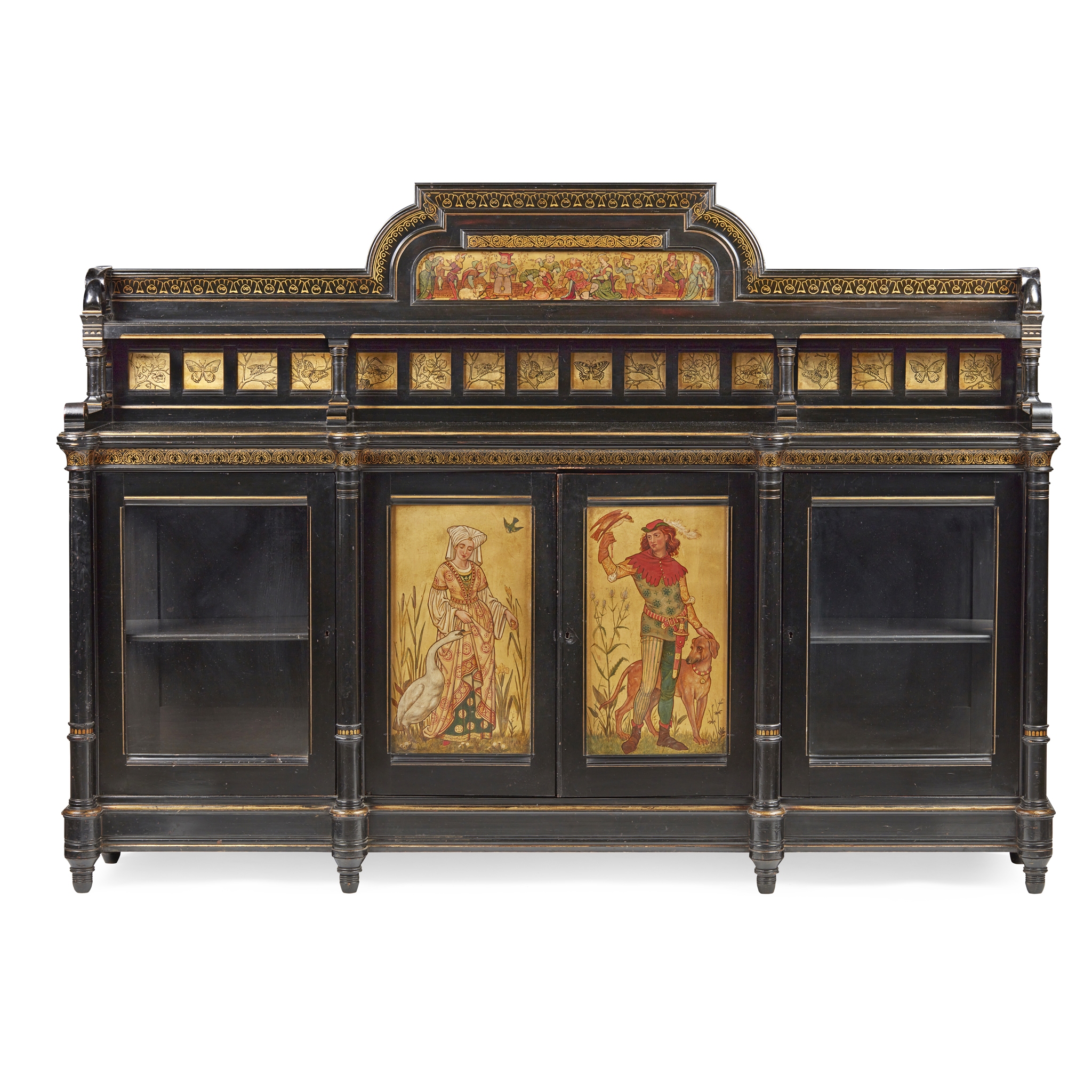
COX & SON, LONDON
AESTHETIC MOVEMENT DRAWING ROOM CABINET, CIRCA 1862
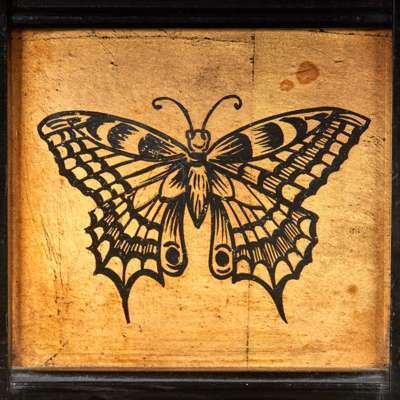
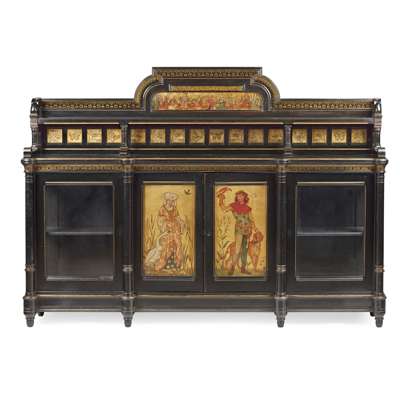
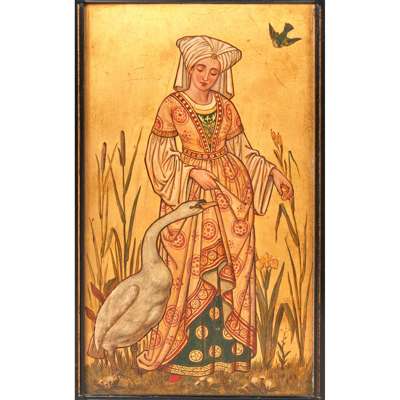
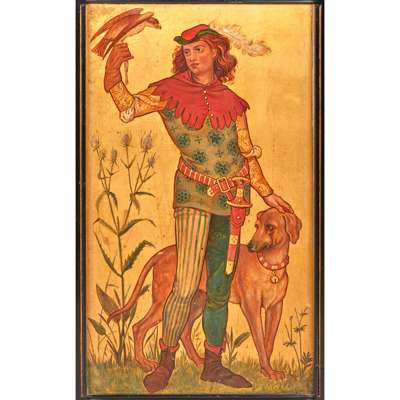
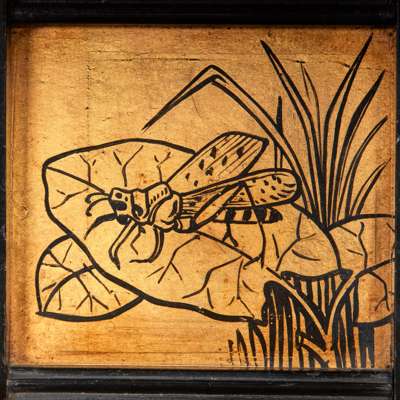
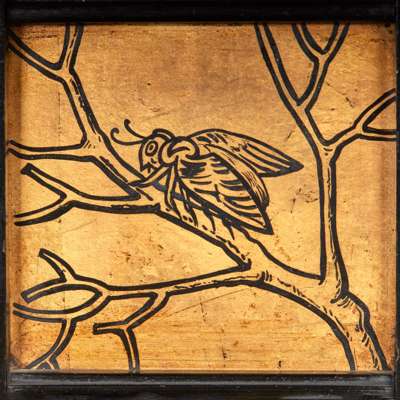



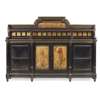
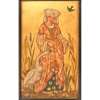
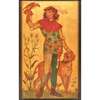
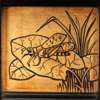
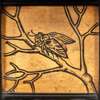


Auction: Lots 1 to 336 | 16th October at 10am
Description
ebonised wood, with polychrome and gilt painted panels, gilded embellishments and glazed doors
Dimensions
198.5cm wide, 142cm high, 37.5cm deep
Provenance
Provenance: Paul Reeves, London
Footnote
Literature: The Building News, May 31st 1872, p. 439 where an example of this lot is illustrated in a line drawing of the Cox & Son stand (exhibit no. 2781)
Note: Cox & Sons, a prominent London-based firm founded in 1837, initially specialized in church furnishings but expanded their scope in the 1860s and 1870s to include fashionable art furniture and decorative objects. This period marked the height of their success, as they embraced the growing demand for artistic, handcrafted furniture inspired by the Arts and Crafts movement. By 1870 a catalogue of Cox & Son claimed to be able to supply 800 designs of furniture, Gothic metalwork, carpets and hangings by 'eminent church designers'. The firm worked with leading designers of the time, including B.J. Talbert, S.J. Nicholls, G. Goldie, J. Moyr Smith, O.W. Davis, C. Rossiter and E.W. Godwin.
Bruce Talbert, an influential designer and architect, played a significant role in shaping the firm's aesthetic. Known for his Gothic Revival designs and intricate use of ornamentation, Talbert's work for Cox & Sons helped solidify their reputation as creators of high-quality, artistic furniture. His influence is particularly evident in the detailed woodwork and decorative panels that became a hallmark of Cox & Sons’ output.
John Moyr Smith also contributed to the firm's artistic offerings, particularly through his tile designs, such as The Winds series, which were incorporated into both tile collections and painted furniture panels. Charles Rossiter provided figurative designs, further enhancing Cox & Sons' reputation for merging art and utility. By the late 19th century, Cox & Sons had established themselves as leaders in Victorian art furniture design.















